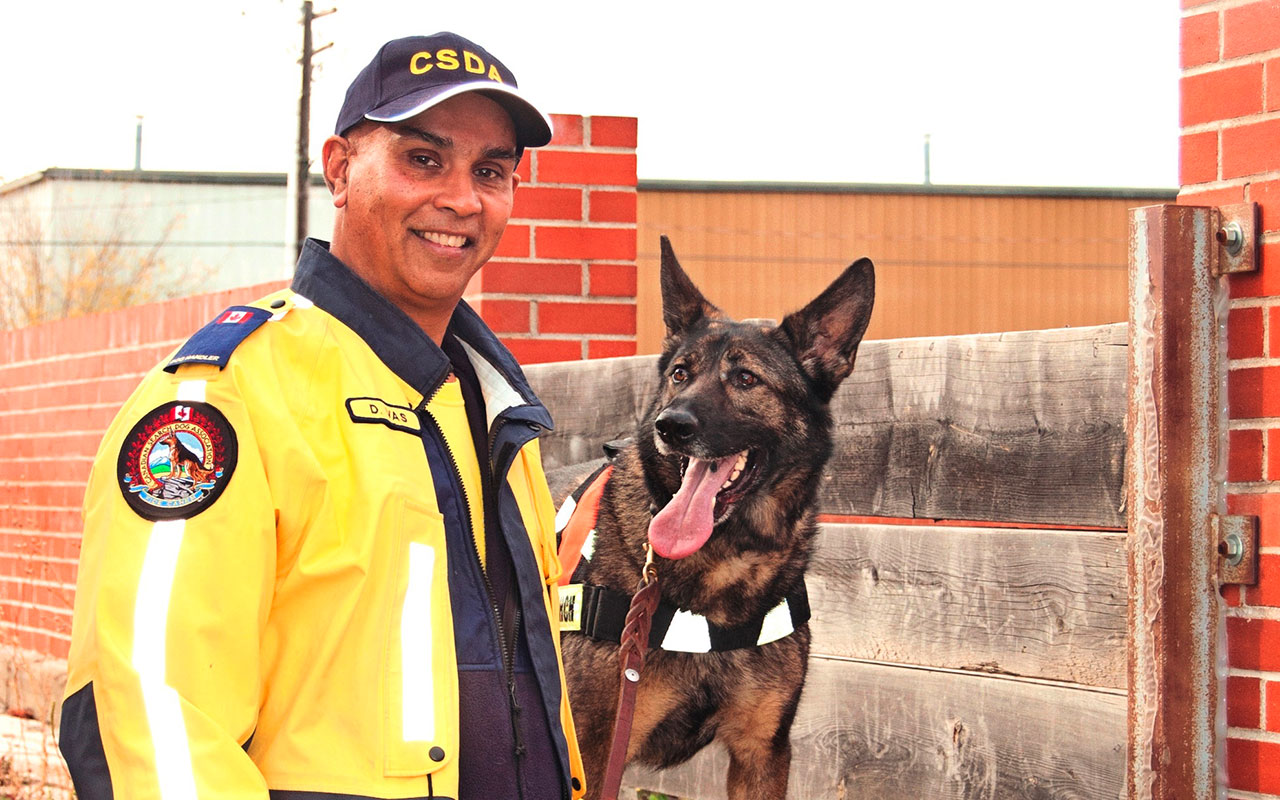
Any breed of dog can be used within the CSDA, provided it can meet the validation criteria which calls for a dog capable of searching both on and off leash in a wide variety of terrain – from very rugged wilderness to urban environments.
Extremely small or very large dogs may not make the best choice. The dog should be of a size similar to a German Shepherd, Lab, or Border Collie. You should be able to lift and carry your dog in an emergency.
Many suitable breeds fall into this category. You should also consider whether the dog has a coat capable of protecting him/her in extreme conditions of heat or cold. Dogs should be healthy and fit.

Throughout our history, the organization has had the following breeds in training although not all have made it through to certification:
- German Shepherd
- Labrador Retriever
- Golden Retriever
- Australian Shepherd
- Border Collie
- Rottweiller
- Standard Poodle
- Portuguese Water Dog
- Airedale Terrier
- Doberman Pinscher
- Boxer
- Belgian Shepherd (Malinois, Groenendael, Turvuren)
- Chesapeake Bay Retriever
- American Staffordshire Terrier
- Standard Schnauzer
- Bloodhound
- Many Mixed Breeds, usually of the above listed breeds
There are, of course, many other breeds which could do the job. Dogs from the herding, hunting or working breeds tend to be the most suitable.
Very large dogs such as Bloodhounds, Newfoundlands and some of the larger Mastiff breeds may not be suited for all the profiles we are required to do and/or do not traditionally work off leash. They would not be automatically disregarded however, if they proved suitable in all required profiles.
Very small or short legged dogs, such as Bassett Hounds or small terriers may posses the ability but may not have the physical stature to do some of the work.
Regardless of the breed you choose, you should select an individual that possesses the natural drives needed to help make the dog a good working partner. Very simply put, you want a curious, confident, outgoing, amenable dog that likes to retrieve.
